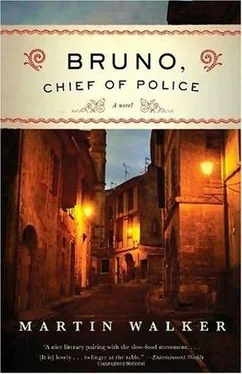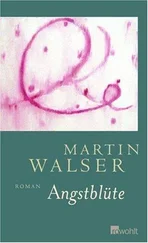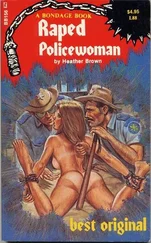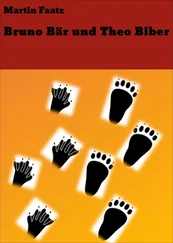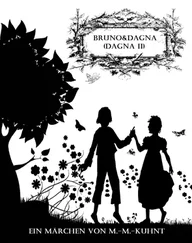Martin Walker - Bruno, chief of police
Здесь есть возможность читать онлайн «Martin Walker - Bruno, chief of police» весь текст электронной книги совершенно бесплатно (целиком полную версию без сокращений). В некоторых случаях можно слушать аудио, скачать через торрент в формате fb2 и присутствует краткое содержание. Жанр: Полицейский детектив, на английском языке. Описание произведения, (предисловие) а так же отзывы посетителей доступны на портале библиотеки ЛибКат.
- Название:Bruno, chief of police
- Автор:
- Жанр:
- Год:неизвестен
- ISBN:нет данных
- Рейтинг книги:3 / 5. Голосов: 1
-
Избранное:Добавить в избранное
- Отзывы:
-
Ваша оценка:
- 60
- 1
- 2
- 3
- 4
- 5
Bruno, chief of police: краткое содержание, описание и аннотация
Предлагаем к чтению аннотацию, описание, краткое содержание или предисловие (зависит от того, что написал сам автор книги «Bruno, chief of police»). Если вы не нашли необходимую информацию о книге — напишите в комментариях, мы постараемся отыскать её.
Bruno, chief of police — читать онлайн бесплатно полную книгу (весь текст) целиком
Ниже представлен текст книги, разбитый по страницам. Система сохранения места последней прочитанной страницы, позволяет с удобством читать онлайн бесплатно книгу «Bruno, chief of police», без необходимости каждый раз заново искать на чём Вы остановились. Поставьте закладку, и сможете в любой момент перейти на страницу, на которой закончили чтение.
Интервал:
Закладка:
Believe me, you have to come here.’
CHAPTER 24
In Pamela’s large sitting room, where the walls were glowing gold in the sunlight and her grandmother’s portrait stared serenely down at him, Bruno plunged back nearly sixty years into the horror of war and occupation in this valley of the Vйzиre. The smell of burning and cordite seemed to rise from the austere pages of Christine’s books, and the history of times long before he was born suddenly seemed intimately, terribly close.
The Force Mobile, he read, was a special unit formed by the Milice, the much-feared police of the Vichy regime that administered France under the German Occupation after 1940. Under German orders, transmitted and endorsed by French officials of the Vichy government, the Milice rounded up Jews for the death camps and young Frenchmen who were conscripted into forced labour in German factories. As the tide of war turned against Germany after 1942, the Resistance grew, and its ranks were swollen by tens of thousands of young Frenchmen fleeing to the hills to escape the STO, the Service de Travail Obligatoire. They hid out in the countryside, where they were recruited by the Resistance and took the name Maquis, from the word for the impenetrable brush of the hills of Corsica.
To this raw material, the Maquis, came the parachute drops of arms and radio operators, medical supplies, spies and military instructors from Britain. Some came from the Free French led by de Gaulle, some from Britain’s Special Operations Executive and others from British Intelligence, MI6. The British wanted the Maquis to disrupt the German Occupation, or, in the words of Winston Churchill’s order establishing the SOE, ‘to set Europe ablaze’. But as the invasion neared, the prime British objective was to disrupt military communications in France, and to force German troops away from defending the beaches against an Allied invasion, and drive them into operations against the Maquis deep inside France. The Gaullists wanted to arm the Maquis and to build the Resistance into a force that could claim to have liberated France, thus saving France’s honour after the humiliation of defeat and Occupation. But the Gaullists also wanted to mould the Resistance into a political movement that would be able to govern France after the war and prevent a seizure of power by their rivals, the Communist Party. On occasion, Gaullists and Communists fought it out with guns, usually in disputes over parachute drops.
The Milice and their German masters crafted a new strategy to crush the Resistance in key areas. Specialist German troops, anti-partisan units, were shipped in from the Russian front, and from Yugoslavia where they had become experienced at battling similar guerrilla forces. But the real key to the new strategy was to starve out the Resistance by terrorising the farmers and rural people on whom the Maquis depended for their food. Rural families whose sons had disappeared were raided, beaten, sometimes killed and the women raped. Crops and livestock were confiscated, farms and barns were burned. This reign of terror in the countryside was carried out by a unit specially recruited for the task, the Force Mobile. In the Pйrigord, it was based in Pйrigueux.
Sitting in Pamela’s peaceful home, Bruno read on, rapt and appalled. He knew that the Occupation had been rough, that many in the Resistance were killed, and that the Vichy regime became engaged in a civil war of Frenchmen killing Frenchmen. He knew about atrocities like Oradour-sur-Glane, the village to the north where German troops, in reprisal for the death of a German officer, had locked hundreds of women and children into the church and set it on fire, machine-gunning any who tried to escape the flames. He knew of the small memorials dotted around his region: a plaque to a handful of young Frenchmen who died defending a bridge to delay German troop movements; a small obelisk with the names of those shot pour la Patrie. But he had never known about the Force Mobile, or the wave of deliberate brutality inflicted on this countryside he thought he knew so well.
The Force Mobile in Pйrigord was commanded by a former professional footballer from Marseilles called Villanova. Oh, sweet Jesus, Bruno thought as he read the name he’d so recently come to know. Villanova brought a new refinement to the rural terror. He believed that the French peasants would be even more effectively intimidated if the reprisals and rapes and farm burnings were carried out by North Africans, specially recruited for the job with promises of extra pay and rations, and all the women and loot they could take from the farms they raided. Villanova found his recruits in the immigrant slums of Marseilles and Toulon, where unemployment and poverty had provoked desperation, and where he had many acquaintances in the local football teams that included young Arab immigrants.
Bruno shivered as he realised where this was leading. He would have to pursue the hypothesis that his murder victim, Hamid al-Bakr, war hero of France, had also been Hussein Boudiaf, war criminal and terroriser of Frenchmen. Christine was right. He would have to go to Bordeaux in the morning, and gather the evidence about the Force Mobile, Villanova, Boudiaf, and other members. This theory, which had seemed as obvious to Christine as it now did to him, was indeed dynamite. The evidence for it would have to be complete and unassailable.
They would also have to research the names of the victims of the Force Mobile in order to identify the families who had suffered – and who had every reason to want vengeance against any of Villanova’s North African troops still living.
They would certainly have the motive to kill an old Arab whom they recognised from those dark days of the war.
And what of Momu? What would it do to Momu, to Karim and Rashida, if they were to learn that their beloved father and grandfather had been a war criminal, a terrorist in the employ of the puppet Vichy state, acting under Nazi orders?
What kind of shock would it be to learn that the man you respected as a war hero, as the brave immigrant who established his family as Frenchmen with education and prospects and family pride, had in reality been a beast who spent the rest of his life living a lie? How could the family stay in St Denis with that knowledge hanging over them? How would the rest of the little North African community in St Denis react to this revelation?
Bruno could scarcely bring himself to think about the French public reaction to the North Africans once all this became known, or to imagine by how many hundred votes the Front National vote would swell. He bent forwards in his chair, his head in his hands, biting his lip as he tried to cudgel his brain into rational thought. He had to make some plans, talk to the Mayor, brief J-J and Isabelle, and arrange to go to Bordeaux in the morning. He must talk to Christine, get some advice on how on earth he could prepare his town for a bombshell such as this.
‘Are you all right, Bruno?’ Pamela had come in to the room. ‘Christine said you would have some pretty grim news and you would need a very stiff drink, but you look quite devastated. You’re as white as a sheet. Here, have some whisky – it’s not that Lagavullin you tried the other night. It’s plain Scotch, so take a big gulp.’
‘Thanks, Pamela.’ He took a hefty gulp, and almost gagged on the fire of it, but it made him feel better. ‘Thanks for the drink, and for being normal. I’m afraid I have been in something of a nightmare, reading about these horrors of the Occupation. It’s a relief to come back to the present day and to life in a pleasant home.’
‘Christine said she thought it was somehow related to Hamid’s murder, but she didn’t give any details. It’s funny how the past never quite goes away.’
Читать дальшеИнтервал:
Закладка:
Похожие книги на «Bruno, chief of police»
Представляем Вашему вниманию похожие книги на «Bruno, chief of police» списком для выбора. Мы отобрали схожую по названию и смыслу литературу в надежде предоставить читателям больше вариантов отыскать новые, интересные, ещё непрочитанные произведения.
Обсуждение, отзывы о книге «Bruno, chief of police» и просто собственные мнения читателей. Оставьте ваши комментарии, напишите, что Вы думаете о произведении, его смысле или главных героях. Укажите что конкретно понравилось, а что нет, и почему Вы так считаете.
